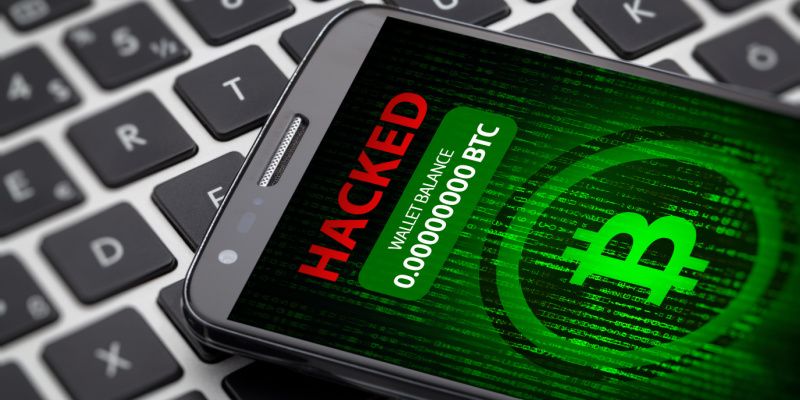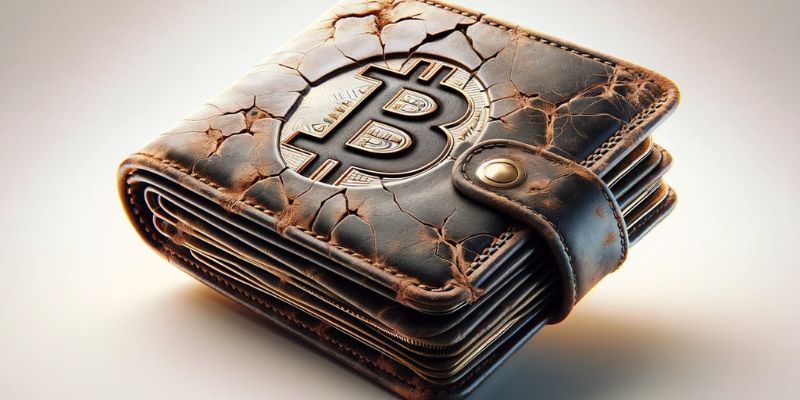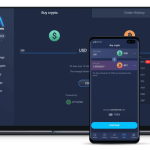Vulnerabilities in Crypto Wallets 2024: Safeguard Your Digital Gold
Here’s the stark truth: in 2024, the vulnerabilities in crypto wallets are smarter, sneakier, and more complex than ever. Your digital assets face threats that evolve as quickly as the technology itself. Picture your crypto as actual gold in a vault; you wouldn’t skimp on locks, right? That’s the mindset you need for your digital treasures too. Let’s dive deep into the landscape of crypto wallet hacks this year. I’ll show you the ropes, from spotting new threats to beefing up your security. With the right know-how, you can fend off even the craftiest of cyber-thieves and keep your digital gold safe.
Understanding the Landscape of Crypto Wallet Hacks in 2024
Identifying New Threats to Digital Wallets
In 2024, digital wallets face new dangers. Bad actors now exploit small flaws in hot wallets and cold storage units. Phishing scams in crypto have gotten smarter, tricking people into revealing their private keys. Hardware wallet vulnerabilities stem from simple oversights, like using public Wi-Fi, which poses a big risk. Cyber thieves now target mobile wallets with malware that can drain crypto funds.
These threats make us always watch out for risks in our digital pockets. We must not fall for phishing emails trying to steal our seed phrases or private keys. All it takes is one click, and your crypto might vanish. A secure link might be a trap. Learn how to spot such tricks.
The Evolution of Malware Attacks on Digital Wallets
Software wallet security flaws remain a major problem. In 2024, malware has evolved, sneaking past many security layers. It now aims for the wallet interface, waiting for a chance to strike. We’ve seen malware automate fund transfers from compromised wallets.
Malware threats now mask as safe downloads or hide on websites you trust. They may get in when you update wallet software or use blockchain analysis tools. This year, always double-check the source of your downloads.
Multi-signature wallet weaknesses have surfaced too. If you share access, make sure every user is alert. Deceptive malware might trick you into confirming a harmful transaction. A usual update might be a trap. Don’t confirm anything if you feel unsure.
We’re battling more than just tech issues. Cybersecurity for crypto assets in 2024 means outsmarting the scams that prey on our trust. Threats evolve, so we must also improve our defenses.
In 2024, staying a step ahead of hackers means always learning. Keep up with security patch updates and learn how malware changes. Encrypt your wallet data, and use two-factor authentication (2FA) whenever you can. Be careful about API security in your crypto wallets. Always check for odd signs in your wallet’s behavior to catch unauthorized access early.
Protect your digital gold by learning these new threats. Your vigilance is a powerful shield against crypto wallet hacks in 2024.
Protecting Crypto Assets from Emerging Vulnerabilities
Strengthening Defenses Against Private Key Exposure and Seed Phrase Theft
Private keys are like the keys to a safe. If someone steals them, they can take your crypto. Your seed phrase is a backup key. It’s just as important to protect. We can’t let thieves get them. The good news is, we can do a lot to keep them safe.
One big step is to keep private keys and seed phrases offline. We call this “cold storage.” It’s safer because no hacker can touch it through the internet. Think of it like keeping your most valuable things away from thieves’ reach.
Now, how about when you need to use your wallet? That’s where things like multi-signature wallets and two-factor authentication (2FA) come in. They help a lot. I’ll tell you how in the next part.
The Role of Multi-Signature Wallets and 2FA in Enhancing Security
Multi-signature wallets are like having several locks on a door. You need more than one key to open it. This means if a hacker gets one key, they still can’t get in. It’s a strong way to stop theft.
Two-factor authentication (2FA) is another lock. It asks for a password and something else – maybe a code from your phone. Even if someone knows your password, without the code, they can’t get in.
But take care. Smart hackers have tricks to skip 2FA, like “SIM swapping.” They trick your phone company into giving them control of your phone number. Then they can get your codes. Scary, but true.
We also need to think about what’s happening on your device. Malware is like a virus that can spy and steal from you. Security patch updates are super important here. They fix holes that hackers use to sneak malware onto computers.
What can go wrong? A lot, but we can be ready. Stay away from public Wi-Fi when using your wallet. Those connections might not be safe. Also, keep an eye out for phishing scams. They try to trick you into giving away keys.
Remember, when you use a wallet, you use a type of software. Sometimes, software can have security flaws or “bugs.” That’s why updating your wallet software is crucial. An updated wallet is a safer wallet.
Finally, let’s talk about keeping your wallet backups safe. You should have a backup so you can get your crypto back if something goes wrong. An extra step is to split your seed phrase. Keep it in different places that you trust.
In the crypto world, your security is in your hands. Always think like a guard. Protect your keys, your phrases, and your wallet like gold. Because in the digital world, they are your gold.
Best Practices for Secure Wallet Management
Implementing Wallet Backup and Recovery Plans
Do you have a plan if you lose your wallet? It’s not just about dropping it at a concert or leaving it on a bus anymore. In the digital realm, your crypto wallet can face many threats, far more complex than a simple mishap. Think hacks, software flaws, or even your own forgetfulness. Let’s dive into keeping your digital gold safe, shall we?
Back up your wallet, folks. It’s like making a copy of your house key. You’ll need the right spots where no one can find them. Engrave your seed phrase – that’s your wallet’s secret sauce – on metal. Fire won’t burn it. Water won’t wash it away. Got a hardware wallet? Keep it in a safe spot, a real one, or maybe a bank’s safety deposit box.
For recovery, use trusted contacts. They can help you recover your account if trouble strikes. Set up a multi-signature wallet for more security. It’s like a group of friends who must all say ‘yes’ before any crypto moves.
Navigating Security Patch Updates and Encryption Protocols
Let’s talk updates next. You know how your phone bugs you with update alerts? Your crypto wallet needs these too. Updates squash bugs – not the 6-legged kind; I mean security holes where hackers can get in. Crypto wallet hacks in 2024 are tricky. They look for the smallest cracks. Always update your wallet when its maker says so.
Encryption keeps your wallet’s data scrambled from prying eyes. Weak encryption is like a rusty lock on your front door. Strong encryption? Now that’s a vault door. 2024’s encryption has to fight against all the new ways hackers find to peek into our wallets.
Hackers are sneaky. They trick you into giving them your info, like with phishing scams. Some even try SIM swapping, making your phone’s brain theirs. Then, all your texts and calls go to them, maybe even those with codes to get into your wallet.
Always monitor your wallet for odd stuff. Did you see a transaction you didn’t make? Act fast. Lock down your wallet. Change your passwords. Now, I don’t mean “1234” or “password.” I’m talking tough ones, like a mix of letters, numbers, and symbols.
Lastly, have a good chat with the folks who make your wallet. Are they keeping up with latest security? Are they ready to fight off the next big hack? You want a team that treats your digital coins like the precious treasure they are.
And there you are. A tough plan to keep your crypto safe. Backup and recovery ready to go? Check. Up-to-date with all your patches and encryption? Check. You’re set against all the sneaky tricks out there. Now go ahead, secure that digital gold of yours.
Preparing for Future Challenges in Wallet Security
Addressing the Risks of Quantum Computing
Stay sharp, friends! Quantum computers are on the rise. They could crack our wallet codes fast. Very fast! This means our crypto could be at risk. We must work now to stay ahead. Quantum computing threats to wallets are no small thing, trust me. Especially for you using simple password protection. What’s our move? Beefing up our crypto defenses, that’s what!
First, we dive into stronger encryption. Think new math problems, but way trickier than what we have now. The kind even quantum beasts can’t solve swiftly. We want to lock our wallets tight. So tight that even these mega-machines stay out. It’s like putting your gold in a safe. But instead of a key, it’s a puzzle so tough, it’ll tire out any sneaky quantum computer trying to get in.
Conducting Comprehensive Wallet Provider Security Audits
You trust your wallet provider, right? You should, but even the best need checks. I’m talking serious checking. This means looking under the hood of their security. Like going to the doc for a health check-up, but for our digital money doctors. Security patch updates 2024 are just the start. Regular audits make sure they fix what’s old or weak.
A good audit eyes everything. It checks for software wallet security flaws, mobile wallet susceptibilities, and even cloud wallet hacking. It’s like a checklist that covers every nook and cranny where bugs or thieves may hide. And you want this checklist used often. It’s like making sure the roof over your gold has no holes, so no rain or thieves get through.
Audits also watch for phishing scams crypto crooks love. Just one wrong click, and poof, there goes your hard-earned coin. Auditors tell wallet folks, “Hey, watch out for these tricks.” And the wallet folks patch up the holes. It’s teamwork to keep your treasures safe.
Hey, we must stay clued in, too. If you see something odd, shout out. See an email or link that seems sketchy? Don’t touch it. That’s how seed phrase theft starts. It’s like leaving your house key out for the taking. Don’t do it!
And don’t you forget backup. We’re talking wallet backup best practices. Make copies of your keys and keep them safe. Like hiding spare keys to your treasure chest.
Do all this, and we keep our digital gold safe and sound. Against quantum tech, hackers or any other storm. We got this, crypto pals!
In this blog, we’ve explored the dangers that threaten our digital wallets in 2024. From new malware to smarter hacks, keeping crypto safe is tough, yet critical. Thankfully, we have tools and tips to build strong walls against these dangers. We’ve seen how private key safety and seed phrase care are key. Also, multi-signature wallets and two-factor authentication (2FA) are big helps.
It’s not all about defense, though. Knowing how to backup and recover your wallet, and staying on top of updates and encryptions are must-dos. And we can’t forget about the future. Quantum computing is a risk on the horizon, and making sure you pick a solid wallet provider that’s up to the challenge is vital.
To wrap it up, wallet security is a moving target, but it’s one we can hit. Remember, a little effort today can save a lot of pain tomorrow. Stay alert, follow these best practices, and keep your crypto safe.
Q&A :
What are the most common vulnerabilities in crypto wallets in 2024?
With the ever-evolving threat landscape, common vulnerabilities in 2024 include security flaws in wallet software, phishing attacks targeting private keys, and the risks posed by malware designed to steal cryptocurrencies. It’s crucial to stay informed about the latest security patches and maintain robust security practices for your digital assets.
How can users protect their crypto wallets from vulnerabilities?
Users can protect their crypto wallets by following best practices such as enabling two-factor authentication, keeping wallet software up to date, using hardware wallets for cold storage, regularly backing up wallet data, and staying vigilant against phishing attempts and other social engineering tactics.
What role does a hardware wallet play in safeguarding against vulnerabilities?
Hardware wallets play a pivotal role in safeguarding against vulnerabilities as they provide an additional layer of security by storing private keys offline. This makes them less susceptible to online hacking attempts, malware, and other digital threats, thus are often recommended for storing large amounts of cryptocurrencies.
Are there any new types of vulnerabilities in crypto wallets specific to 2024?
With the continuous advancement in technology, attackers are always searching for new exploits. In 2024, vulnerabilities specific to newer technology such as smart contract weaknesses, flaws associated with DeFi platforms, or security breaches in emerging cross-chain protocols could become more prevalent.
Is it safe to store large amounts of cryptocurrencies in a software wallet despite known vulnerabilities?
Storing large amounts of cryptocurrencies in a software wallet is generally not recommended due to potential vulnerabilities. Utilizing a combination of hot (software) and cold (hardware) wallets, with the majority of funds stored in a secure, offline environment, can provide a more secure solution for asset management.





